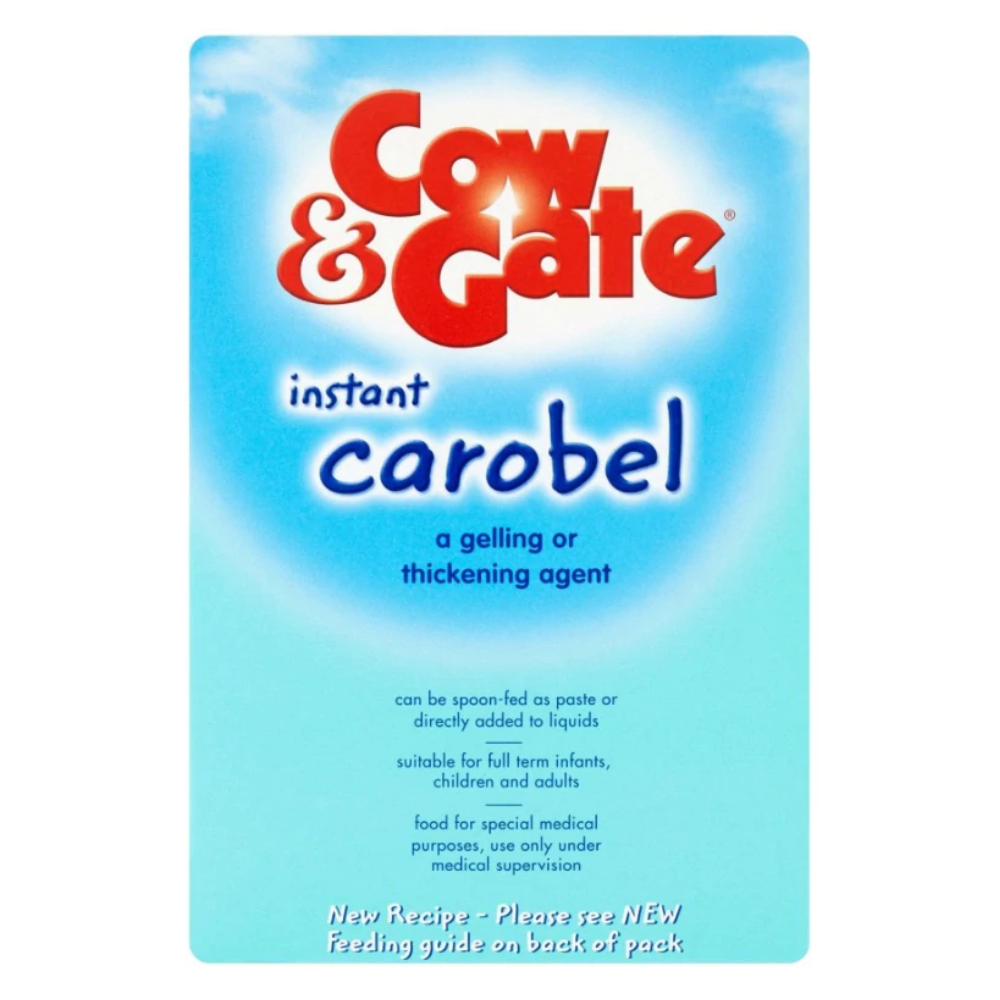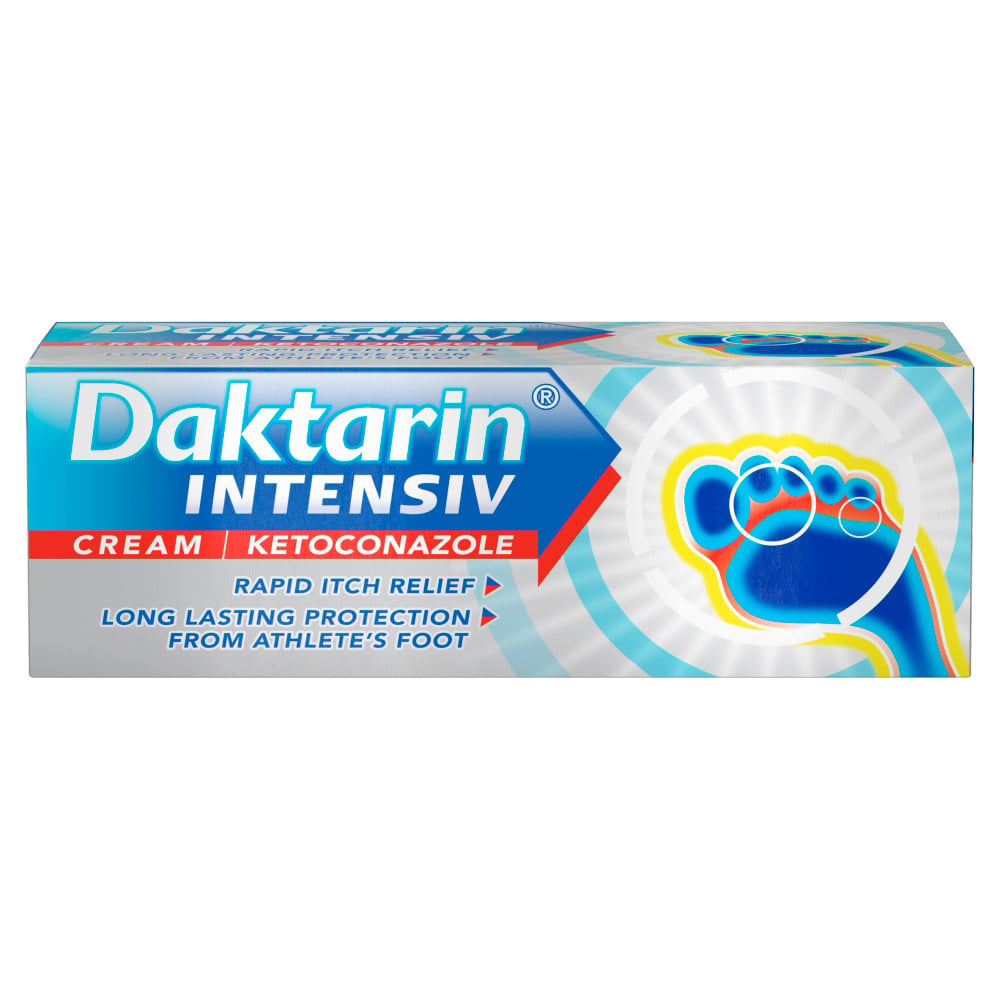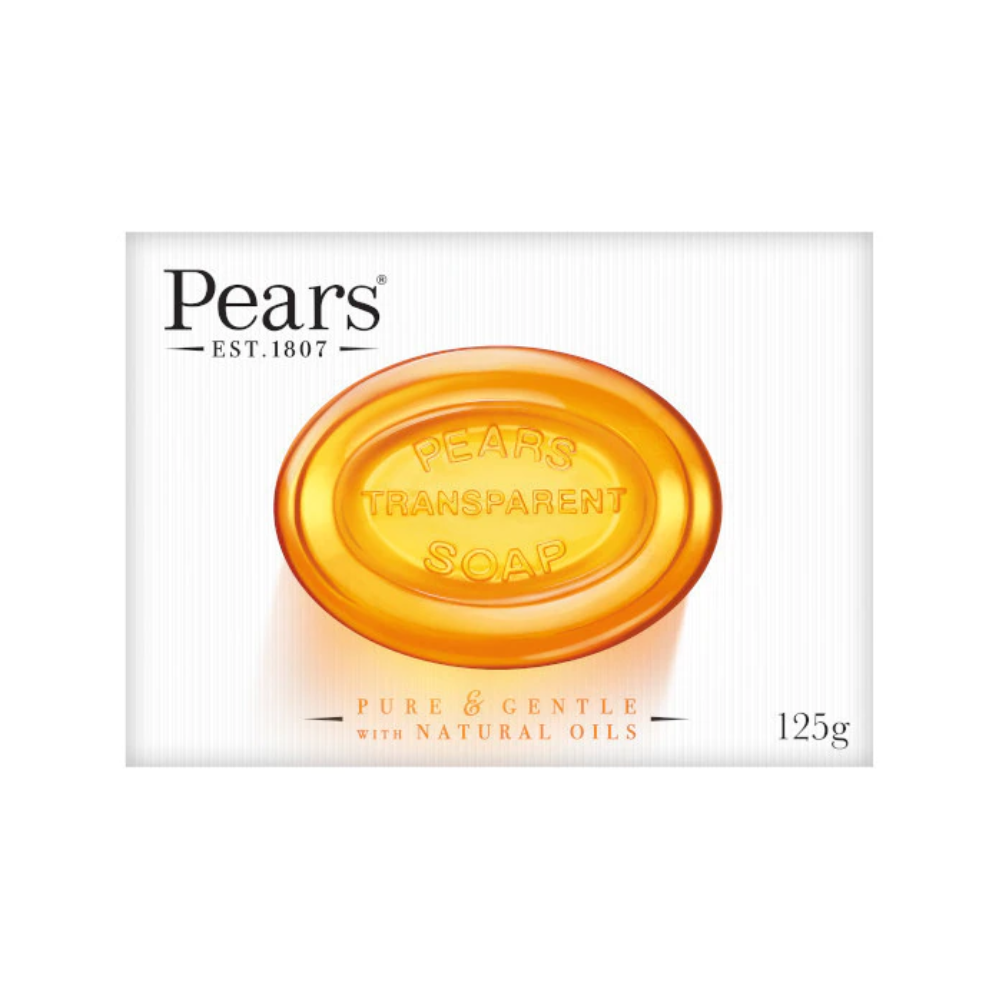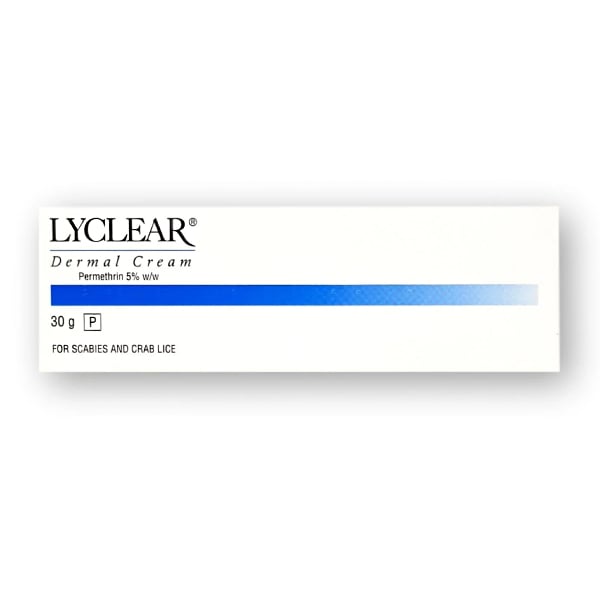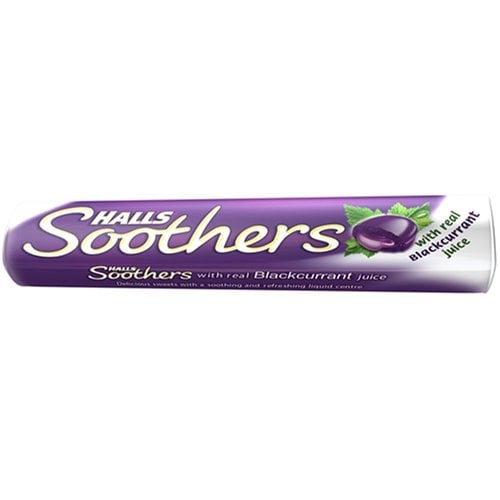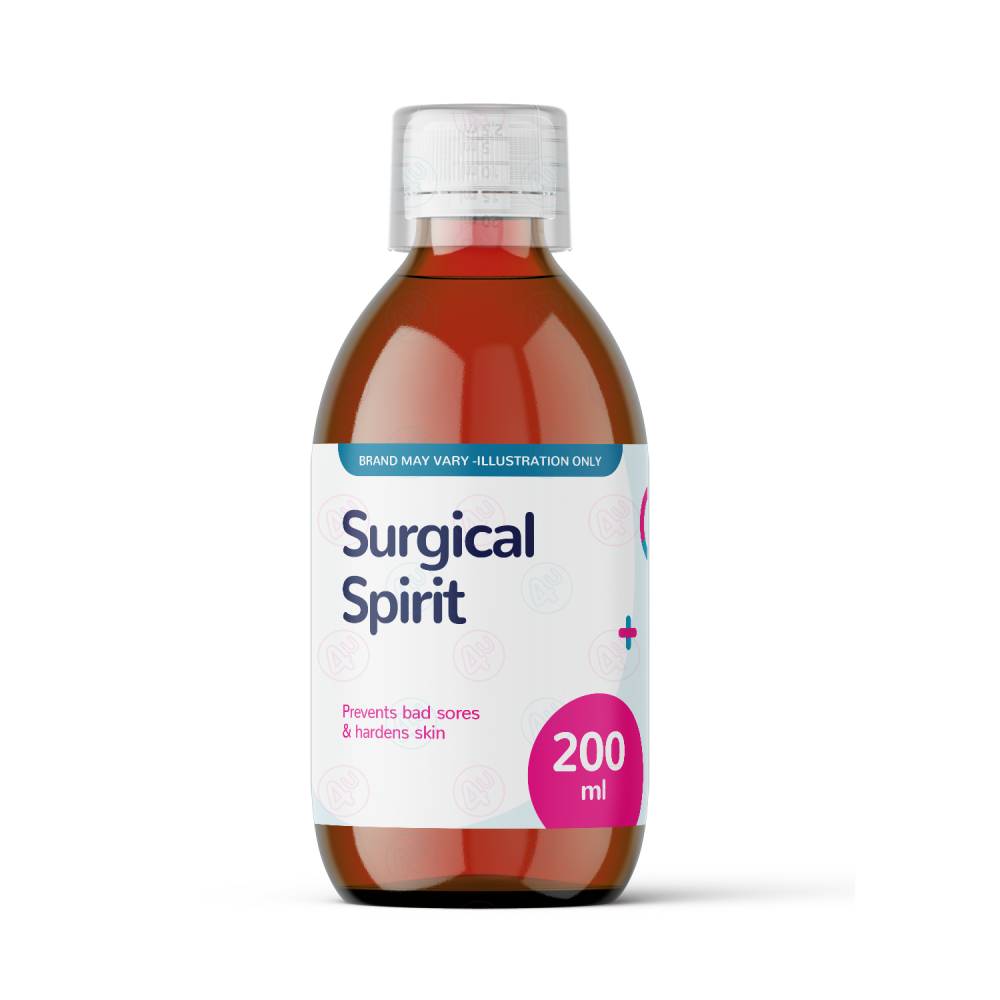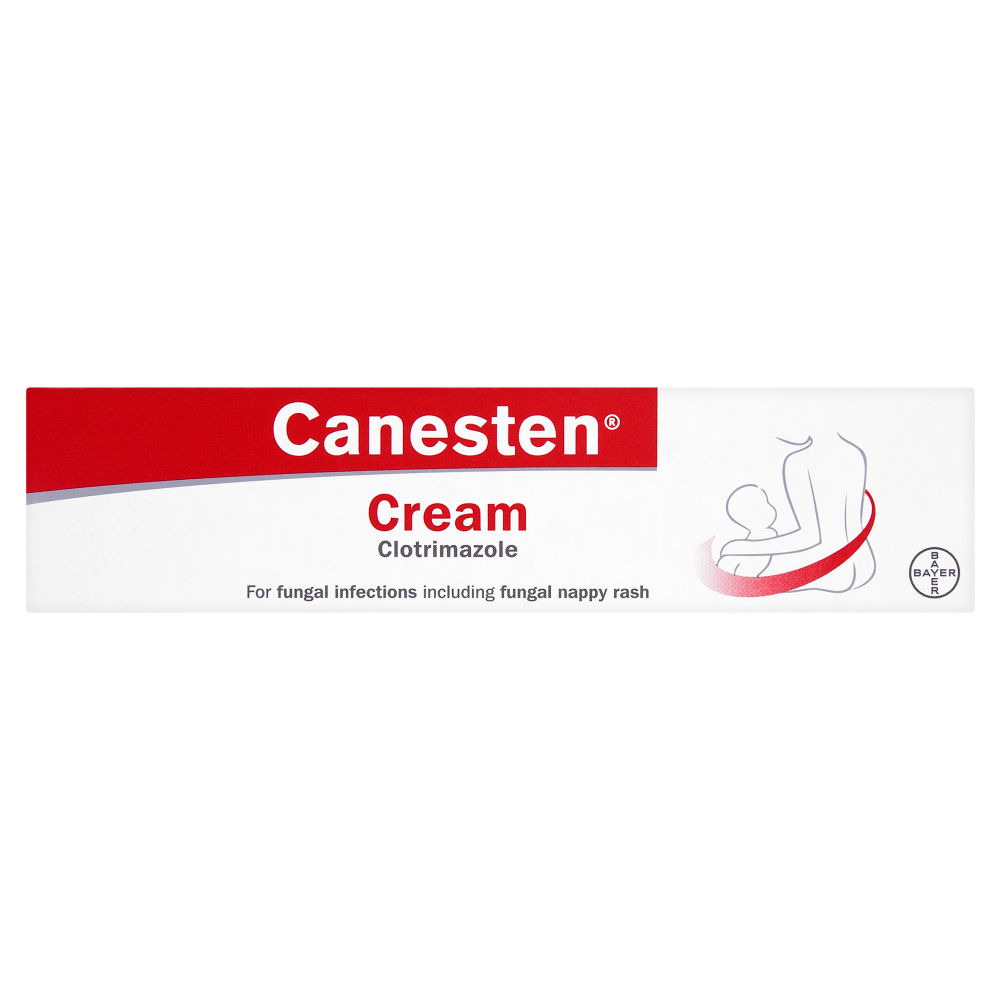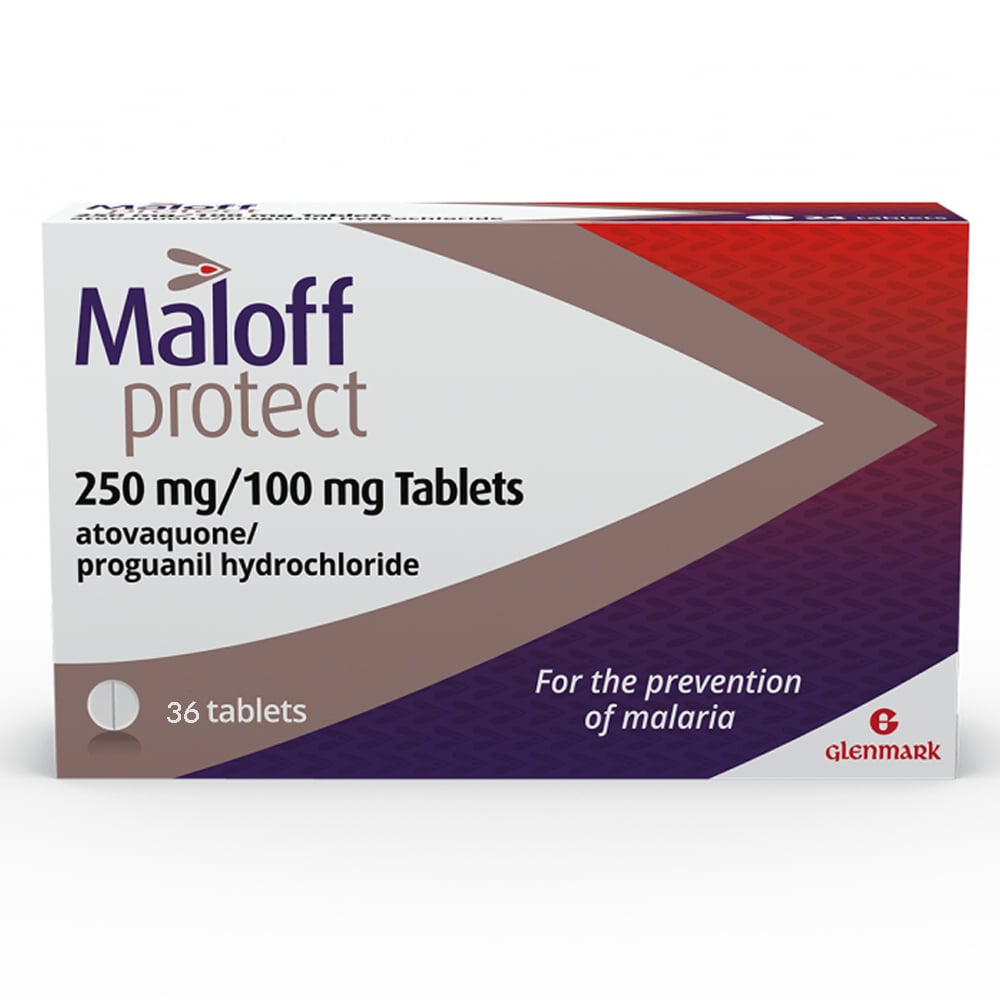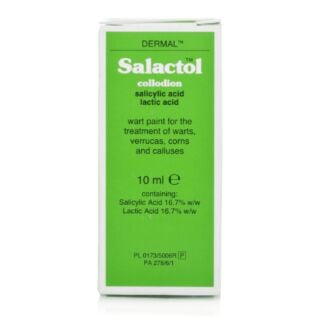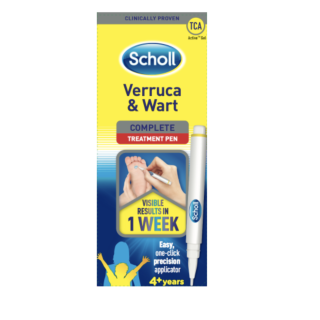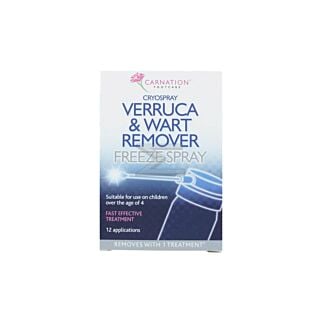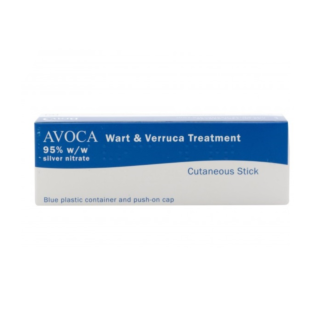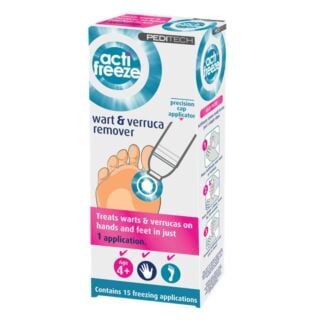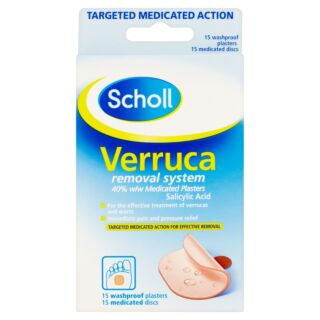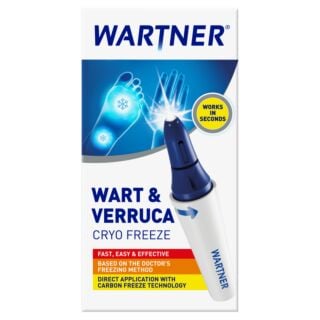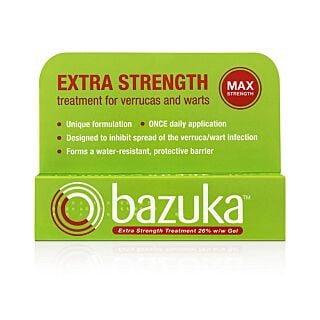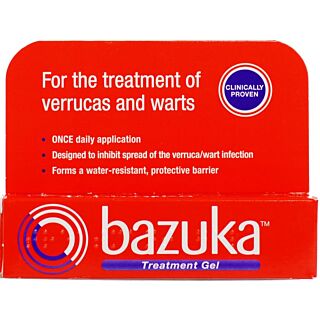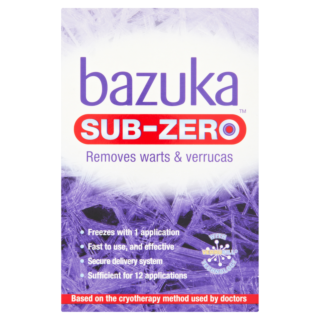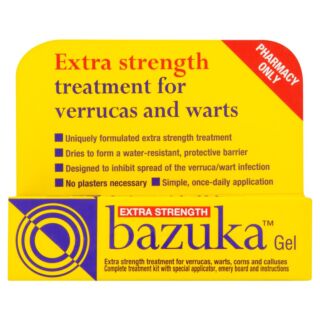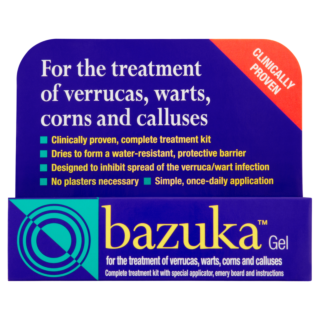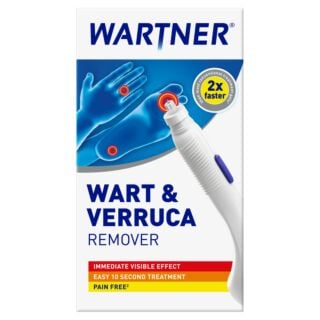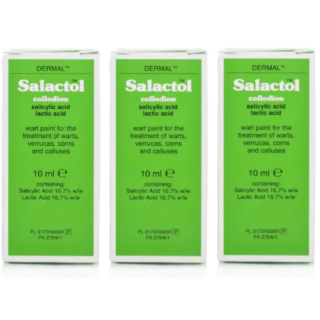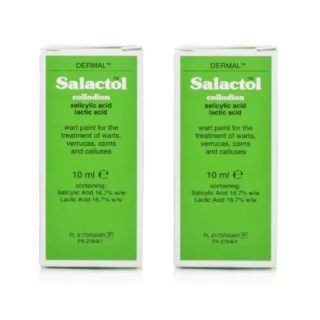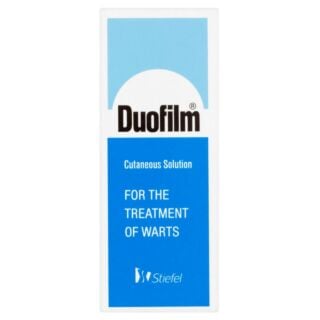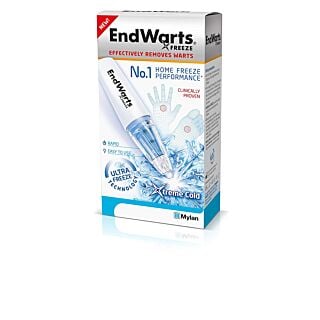Warts & Verrucas
Let’s face it, getting a wart or verruca can feel a bit embarrassing. But just because something might feel embarrassing doesn’t mean you should be embarrassed. After all, warts and verrucae are just the result of an infection with the human papillomavirus (HPV).1 HPV is incredibly common, meaning 5–30% of school age children and adults have warts.2 … Read More See less
Warts and verrucae usually go away on their own.3 However, they can take a long time to clear up, which can be frustrating.3,4 There are things you can do to try and make them clear up more quickly.3 But even if you might feel self-conscious about them, warts and verrucae aren’t usually a cause for concern.5
Keep reading to find out more about warts and verrucae, how to identify a wart, and how to treat them using over-the-counter products (like wart freeze spray) and cryotherapy.
What are warts and verrucae?
Cutaneous warts are small, benign (non-cancerous) growths that are caused by an infection with HPV.1,5 There are over 100 subtypes (strains) of HPV, but only a few types can cause warts.5
Warts are generally harmless, but they can be sometimes painful and make it difficult to wear shoes and walk.5 They can also affect your self-esteem.2
Most people will have warts at some point in their life, but they tend to affect children and teenagers more than adults.6
Types of warts
Warts can appear anywhere on your skin and mucosa, like on your hands and knees.1,3,5 They vary in appearance and may develop on their own or in clusters.6
There are different types of warts, depending on where they are and what they look like:6–9
- Common warts – warts on your fingers, hands, or knees. These warts are firm, rough and might look like a very small cauliflower. They’re usually only a few millimetres across and are greyish-white or light brown
- Verrucae (plantar warts) – warts on your feet (soles) that might have tiny black dots in the centre. Verrucae can be painful, especially when you put weight on them. If you have a cluster of verrucae, they can fuse together and form mosaic warts
- Plane warts (flat warts) – most common on your face and the backs of your hands. These warts are smooth, round, and slightly raised, with a flat top. They can be slightly brown, greyish-yellow or skin-coloured. You tend to have more than one at a time
- Filiform warts – commonly found on your face or neck. These look a bit like a finger and sometimes have a stalk
- Periungual warts – typically found around your fingernails or toenails. Like common warts, these have a cauliflower-like appearance
Genital warts are a type of wart on your genitals also caused by HPV.7 These are classed as a sexually transmitted infection and treated differently to the other types of warts, so we have dedicated a separate page to discussing genital warts, anal warts and genital warts treatments.7
When to see a GP
You shouldn’t normally need to see a GP for a wart or verruca, as a pharmacist can usually provide the help you need.3 But you should see a GP if:3
- A growth on your skin is causing you concern
- You have a wart or verruca that keeps coming back
- You have a very large or painful wart or verruca
- A wart or verruca bleeds or changes in appearance
- You have a wart on your face or genitals
Are warts contagious?
HPV is contagious and so are warts.5 They can spread through direct, skin-to-skin contact.5,6 But they can also spread through indirect contact with contaminated objects, such as:5,6
- Towels
- Shoes
- Areas surrounding swimming pools
- The floors of communal changing areas
The HPV virus can enter your skin through small cuts if your skin is damaged.8 Then, once you have a wart it can spread to other parts of your body, for example, if you scratch it and then touch another part of your body.6
You’re more likely to get a wart or spread a wart to another part of your body if your skin is damaged or wet.6,7 This is because HPV virus can enter your skin through small cuts and is more likely to infect moist skin.6,7
How to treat warts
Typically, warts and verrucae clear up on their own without any treatment.3,6,11 However, it can take up to two years for the virus to leave your system and the warts to disappear.3,6,11 Though this can vary from person to person, and can take even longer in older children and adults.6
As warts tend to go away by themselves, treatment isn’t always recommended because it can be painful and cause adverse effects like:11
- Pain
- Blistering
- Infection
- Scarring
This means, a lot of the time, the benefits of treatment don’t necessarily outweigh the downsides.6,11 Especially because, sometimes, a wart can return following treatment.6 However, there are some circumstances in which treatment may be worthwhile. For example, if your wart is:
- Painful (e.g. On the soles of the feet or near a nail)
- Not getting better after treatment
- Causing you distress or embarrassment due to its position (e.g. On the face)
Common ways to treat warts and verrucae include:3,6,11
Over-the-counter products
You can buy creams, gels, wart paints, wart and verruca freeze sprays and medicated plasters over the counter to treat warts and verrucae. Some of these treatments contain topical salicylic acid (most preparations are 12–26 %), which should be applied every day for up to 12 weeks. Over-the-counter products may irritate your skin, are not suitable for warts on your face and don’t always work.
Cryotherapy
If over-the-counter treatment has not worked or you have a wart on your face, your GP or a podiatrist may use liquid nitrogen to freeze spray a wart and destroy the affected skin cells. This procedure is called cryotherapy and is usually carried out every 2–4 weeks for six treatments or until the wart is gone.
How to prevent warts
To reduce your chances of getting warts or verrucae and prevent them spreading to others:3,6,10
- Keep your feet dry
- Change your socks every day and do not share shocks with someone who has a verruca
- Avoid scratching or picking a wart or verruca to prevent it from spreading
- Wear gloves if you have a wart on your hand and need to share equipment
- Wear shoes or flip flops around communal changing rooms and swimming pools
- Don’t share towels or other personal items with someone who has a wart
- Cover your wart or verruca with a waterproof plaster or a verruca sock when swimming
Sources
- https://cks.nice.org.uk/topics/warts-verrucae/
- https://cks.nice.org.uk/topics/warts-verrucae/background-information/prevalence/
- https://www.nhs.uk/conditions/warts-and-verrucas/
- https://cks.nice.org.uk/topics/warts-verrucae/background-information/prognosis/
- https://my.clevelandclinic.org/health/diseases/15045-warts
- https://www.nhsinform.scot/illnesses-and-conditions/skin-hair-and-nails/warts-and-verrucas/
- https://www.bupa.co.uk/health-information/healthy-skin/warts-and-verrucas
- https://cks.nice.org.uk/topics/warts-verrucae/background-information/definition/
- https://www.healthline.com/health/skin-disorders/periungual-warts
- https://my.clevelandclinic.org/health/diseases/24899-plantar-warts
- https://cks.nice.org.uk/topics/warts-verrucae/management/management/

Free delivery when you spend over £39

100% discreet delivery for every item ordered

Fully regulated UK pharmacy
Are warts and verrucas contagious?
Yes, but you can only pass them on with skin-to-skin contact.
You’re more at risk of catching a wart or verruca if your skin is damaged or wet, for example, in swimming pools and communal spaces.
If you already have the virus in your system, you can spread it to other areas of your body, like if you have warts on your fingers and you bite your nails, this could spread them to your lips.
What are warts?
Warts are small growths that appear on your skin.
Most people get a wart at some point, as they’re very common and they can be picked up easily.
When you have a wart you’ll often notice it looks like a rough, firm growth on your skin and it may be itchy or painful.
However, most people don’t experience any discomfort from their wart, and eventually, after a good few months, it will just go away.
What causes warts and verrucas?
Warts are caused by a virus known as the Human Papilloma Virus (HPV).
This virus is present in the skin cells where there is a wart. HPV is a family of viruses that can affect the skin and the moist membranes of the body.
There are over 100 different strains of HPV, with different strains responsible for different types of wart.
What are verrucas?
Verrucas are actually a type of wart, specifically one that grows on the bottom of your foot.
Verrucas are also known as plantar warts, and they look like flat, round discs with small black dots in them.
They can be quite painful when you walk on them, feeling like you’ve stepped on a needle or pin.
Like all other warts, they’re harmless, but as they usually cause more discomfort than other warts you may want to treat them more quickly than warts on other parts of the body.

